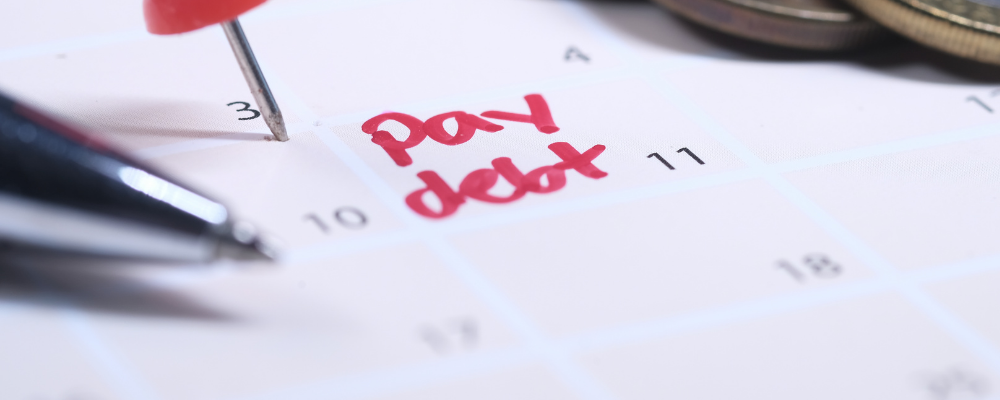There are several consequences to late credit card payments. The worst part is, the fallout of a late payment can affect you for much longer than you may think.
Here are some of the things that will happen if you miss a credit card payment:
#1. You’ll Be Hit With A Late Payment Fee & Daily Interest
Miss a payment by even one day and most credit card companies will charge you a late payment fee. This could be as much as $40. Credit card companies charge daily interest on outstanding balances. So, in addition to the late fee, you’ll also pay interest for every day that you carry a balance. If you did miss a payment by mistake, pay it off as soon as possible. The longer you take to settle the balance, the more you’ll pay by way of interest. The late payment fee and daily interest make missed payments a very expensive mistake.
#2. You’ll Pay A Much Higher APR
APR stands for Annual Percentage Rate. This is the total interest rate you pay for a year and is determined by your credit score. A higher score will generally earn you a lower APR. A missed credit card payment can temporarily cause your APR to spike significantly higher than your purchase APR. This penalty APR is applicable on your total outstanding. You can get revert back to the pre-penalty APR after you meet certain requirements. In most cases, you can do this after making two on-time consecutive payments.
#3. Your 0% Intro APR May Get Cancelled
Many credit card companies offer an introductory interest-free period for new card holders. You may lose this 0% APR benefit if you miss a payment and your card will start attracting interest.
#4. Your Credit Score May Drop
Whether or not your credit score gets affected depends on how many days past the due date you pay the outstanding. Credit card issuers generally only report payments that are more than 30 days overdue. So if you pay a couple of days past the due date, you will pay a penalty and interest but your credit score won’t be affected. However, your credit score will drop if the payment is not made within 30 days of the due date.
An important thing to know is that payment history accounts for 35% of your credit score. That means even one late payment can cause your score to drop a few points. Multiple late payments, can cause considerable damage to your total score. Moreover, late payments stay on your credit report for as long as 7 years.
#5. You May Forfeit Some Or All Of The Card’s Rewards
A late payment may disqualify you from redeeming some or all of the rewards associated with the credit card. This would be a shame if you’ve accumulated a sizable number of points or are looking forward to redeeming a particular reward.
#6. You Could Get Into Credit Card Default
When your outstanding payment is overdue by 180 days, it goes into credit card default. This can happen if you have one payment that’s late by 180 days or if you miss 6 consecutive payments. Either way, the card issuer will consider it a loss, charge off your account, and report it to the credit bureaus. The charge-off will get recorded on your credit report where it will stay for 7 years. This can make it almost impossible for you to get a new card during those 7 years and even longer. No credit card company will want to issue a card to someone with a history of not paying their dues.
What To Do When You’ve Missed A Payment
You know the consequences of late credit card payments but somehow it happened and you missed a payment. It’s okay. There are some things you can do to minimize the damage and get your finances back on track.
Make at least the minimum payment as soon as possible – All credit card bills come with the option to pay a minimum amount and the full amount. Ideally you want to pay the full amount before the deadline to avoid the penalty and extra interest. However, if for some reason you can’t afford to pay the full amount, pay at least the minimum amount due. Doing this as early as you possibly can will minimize the damage to your credit report. Even with the minimum payment, some issuers will still report the late payment to the credit bureaus while others won’t.
Call your card issuer and try to negotiate your payment – If this is your first missed payment, you should try calling your credit card company and explain your situation. It could be that you were sick or just genuinely forgot. Regardless of the reason, it is a one-off incident, most credit card companies will readily waive the late fee and other penalties.
Cut back on your spending the following month – If you missed the payment because you couldn’t afford it, you should curtail your spending the next month. This will help you save money faster to pay off the outstanding credit card bill earlier rather than later. It will also ensure that you don’t get even further into credit card debt.
3 Things You Can Do To Avoid Missing Credit Card Payments
Putting measures in place to avoid the consequences of late credit card payments is much better than trying to do damage control. Here are some things you can do to ensure your payments are made on time:
1. Set up automatic payments so the payments get transferred automatically from your bank on the due date.
2. Set payment reminders using calendar, email or phone alerts and notifications.
3. Change your payment date so it is nearer to the date you receive your income check. This ensures that you clear your bills first before you spend on other items.





